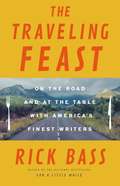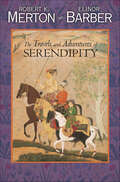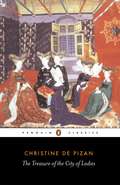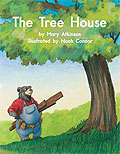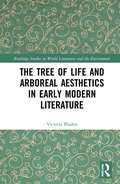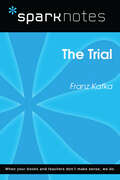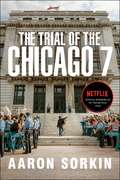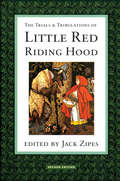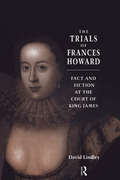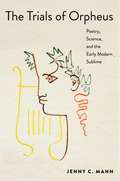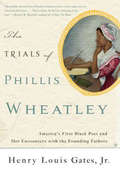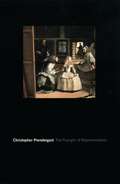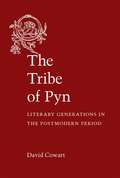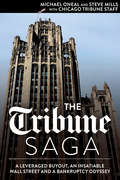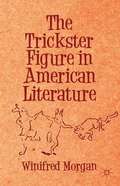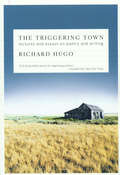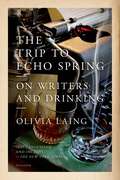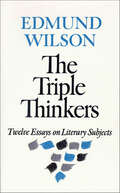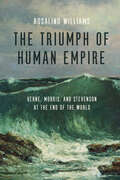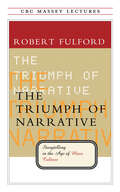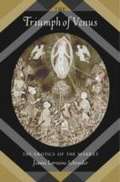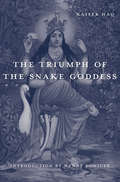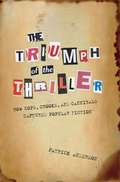- Table View
- List View
The Traveling Feast: On the Road and at the Table with My Heroes
by Rick BassAcclaimed author Rick Bass decided to thank all of his writing heroes in person, one meal at a time, in this "rich smorgasbord of a memoir . . . a soul-nourishing, road-burning act of tribute" (New York Times Book Review). "Exuberant . . . A classic . . . This is a rich bounty of a book." --Publishers Weekly (starred review)"A master."--Boston Globe "One of the very best writers we have."--San Francisco Chronicle "Both mythic and intimate . . . A virtuoso."--O: The Oprah Magazine "The beauty of his sentences recalls the stylistic finesse of Cormac McCarthy and Willa Cather."--Chicago TribuneFrom his bid to become Eudora Welty's lawn boy to the time George Plimpton offered to punch him in the nose, lineage has always been important to Rick Bass. Now at a turning point--in his midfifties, with his long marriage dissolved and his grown daughters out of the house--Bass strikes out on a journey of thanksgiving. His aim: to make a memorable meal for each of his mentors, to express his gratitude for the way they have shaped not only his writing but his life. The result, an odyssey to some of America's most iconic writers, is also a record of self-transformation as Bass seeks to recapture the fire that drove him as a young man. Along the way we join in escapades involving smuggled contraband, an exploding grill, a trail of blood through Heathrow airport, an episode of dog-watching with Amy Hempel in Central Park, and a near run-in with plague-ridden prairie dogs on the way to see Lorrie Moore, as well as heartwarming and bittersweet final meals with the late Peter Matthiessen, John Berger, and Denis Johnson. Poignant, funny, and wistful, The Traveling Feast is a guide to living well and an unforgettable adventure that nourishes and renews the spirit.
The Travels and Adventures of Serendipity: A Study in Sociological Semantics and the Sociology of Science
by Robert K. Merton Elinor BarberFrom the names of cruise lines and bookstores to an Australian ranch and a nudist camp outside of Atlanta, the word serendipity--that happy blend of wisdom and luck by which something is discovered not quite by accident--is today ubiquitous. This book traces the word's eventful history from its 1754 coinage into the twentieth century--chronicling along the way much of what we now call the natural and social sciences. The book charts where the term went, with whom it resided, and how it fared. We cross oceans and academic specialties and meet those people, both famous and now obscure, who have used and abused serendipity. We encounter a linguistic sage, walk down the illustrious halls of the Harvard Medical School, attend the (serendipitous) birth of penicillin, and meet someone who "manages serendipity" for the U.S. Navy. The story of serendipity is fascinating; that of The Travels and Adventures of Serendipity, equally so. Written in the 1950s by already-eminent sociologist Robert Merton and Elinor Barber, the book--though occasionally and most tantalizingly cited--was intentionally never published. This is all the more curious because it so remarkably anticipated subsequent battles over research and funding--many of which centered on the role of serendipity in science. Finally, shortly after his ninety-first birthday, following Barber's death and preceding his own by but a little, Merton agreed to expand and publish this major work. Beautifully written, the book is permeated by the prodigious intellectual curiosity and generosity that characterized Merton's influential On the Shoulders of Giants. Absolutely entertaining as the history of a word, the book is also tremendously important to all who value the miracle of intellectual discovery. It represents Merton's lifelong protest against that rhetoric of science that defines discovery as anything other than a messy blend of inspiration, perspiration, error, and happy chance--anything other than serendipity.
The Treasure of the City of Ladies: Or the Book of the Three Virtues
by Christine de PizanWritten by Europe’s first professional woman writer, The Treasure of the City of Ladies offers advice and guidance to women of all ages and from all levels of medieval society, from royal courtiers to prostitutes. It paints an intricate picture of daily life in the courts and streets of fifteenth-century France and gives a fascinating glimpse into the practical considerations of running a household, dressing appropriately and maintaining a reputation in all circumstances. Christine de Pizan’s book provides a valuable counterbalance to male accounts of life in the middle ages and demonstrates, often with dry humour, how a woman’s position in society could be made less precarious by following the correct etiquette.
The Tree House (Fountas & Pinnell LLI Green #Level F, Lesson 82)
by Mary AtkinsonFountas and Pinnell Leveled Literacy Intervention Green System -- 1st Grade
The Tree of Life and Arboreal Aesthetics in Early Modern Literature (Routledge Studies in World Literatures and the Environment)
by Victoria BladenThe Tree of Life and Arboreal Aesthetics in Early Modern Literature explores the vital motif of the tree of life and what it meant to early modern writers who drew from its long histories in biblical, classical and folkloric contexts, giving rise to a language of trees, an arboreal aesthetics. An ancient symbol of immortality, the tree of life was appropriated by Christian ideology and iconography to express ideas about Christ; however, the concept also migrated beyond religious doctrine. Ideas circulating around the tree of life enabled writers to imagine and articulate ideas of death and rebirth, loss and regeneration, the condition of the political state and personal states of the soul through arboreal metaphors and imagery. The motif could be used to sacralise landscapes, such as the garden, orchard or country estate, blurring the lines between contemporary green spaces and the spiritual and poetic imaginary. Located within the field of environmental humanities, and intersecting with ecocriticism and critical plant studies, this volume outlines a comprehensive history of the tree of life and offers interdisciplinary readings of focus texts by Shakespeare, George Herbert, Henry Vaughan, Aemilia Lanyer, Andrew Marvell and Ralph Austen. It includes consideration of related ideas and motifs, such as the tree of Jesse and the Green Man, illuminating the rich histories and meanings that emerge when an understanding of the tree of life and arboreal aesthetics are brought to the analysis of early modern literary texts and their representations of green spaces, both physical and metaphysical.
The Trial (SparkNotes Literature Guide Series)
by SparkNotesThe Trial (SparkNotes Literature Guide) by Franz Kafka Making the reading experience fun! Created by Harvard students for students everywhere, SparkNotes is a new breed of study guide: smarter, better, faster. Geared to what today's students need to know, SparkNotes provides: *Chapter-by-chapter analysis *Explanations of key themes, motifs, and symbols *A review quiz and essay topicsLively and accessible, these guides are perfect for late-night studying and writing papers
The Trial of the Chicago 7: The Screenplay
by Aaron SorkinThe brilliant screenplay of the forthcoming film The Trial of the Chicago 7 by Academy and Emmy Award–winning screenwriter and director Aaron Sorkin.Sorkin&’s film dramatizes the 1969 trial of seven prominent anti-Vietnam War activists in Chicago. Originally there were eight defendants, but one, Bobby Seale, was severed from the trial by Judge Julius Hoffman—after Hoffman had ordered Seale bound and gagged in court. The defendants were a mix of counterculture revolutionaries such as Abbie Hoffman and Jerry Rubin, and political activists such as Tom Hayden, Rennie Davis, and David Dellinger, the last a longtime pacifist who was a generation older than the others. Their lawyers argued that the right to free speech was on trial, whether that speech concerned lifestyles or politics. The Trial of the Chicago 7 stars Sacha Baron Cohen, Eddie Redmayne, Frank Langella, and Mark Rylance, among others, directed by Aaron Sorkin. This book is Sorkin&’s screenplay, the first of his movie screenplays ever published.
The Trials and Tribulations of Little Red Riding Hood
by Jack ZipesFirst Published in 1994. Routledge is an imprint of Taylor & Francis, an informa company.
The Trials of Frances Howard: Fact and Fiction at the Court of King James
by David LindleyDavid Lindley re-examines the murder trials of Frances Howard and the historical representations of her as `wife, a witch, a murderess and a whore', challenging the assumptions that have constructed her as a model of female villainy.
The Trials of Orpheus: Poetry, Science, and the Early Modern Sublime
by Jenny C. MannA revealing look at how the Orpheus myth helped Renaissance writers and thinkers understand the force of eloquenceIn ancient Greek mythology, the lyrical songs of Orpheus charmed the gods, and compelled animals, rocks, and trees to obey his commands. This mythic power inspired Renaissance philosophers and poets as they attempted to discover the hidden powers of verbal eloquence. They wanted to know: How do words produce action? In The Trials of Orpheus, Jenny Mann examines the key role the Orpheus story played in helping early modern writers and thinkers understand the mechanisms of rhetorical force. Mann demonstrates that the forms and figures of ancient poetry indelibly shaped the principles of sixteenth- and seventeenth-century scientific knowledge.Mann explores how Ovid’s version of the Orpheus myth gave English poets and natural philosophers the lexicon with which to explain language’s ability to move individuals without physical contact. These writers and thinkers came to see eloquence as an aesthetic force capable of binding, drawing, softening, and scattering audiences. Bringing together a range of examples from drama, poetry, and philosophy by Bacon, Lodge, Marlowe, Montaigne, Shakespeare, and others, Mann demonstrates that the fascination with Orpheus produced some of the most canonical literature of the age.Delving into the impact of ancient Greek thought and poetry in the early modern era, The Trials of Orpheus sheds light on how the powers of rhetoric became a focus of English thought and literature.
The Trials of Phillis Wheatley: America's First Black Poet and Her Encounters with the Founding Fathers
by Jr. GatesIn 1773, the slave Phillis Wheatley literally wrote her way to freedom. The first person of African descent to publish a book of poems in English, she was emancipated by her owners in recognition of her literary achievement. For a time, Wheatley was the most famous black woman in the West. But Thomas Jefferson, unlike his contemporaries Ben Franklin and George Washington, refused to acknowledge her gifts as a writer?a repudiation that eventually inspired generations of black writers to build an extraordinary body of literature in their efforts to prove him wrong. In "The Trials of Phillis Wheatley," Henry Louis Gates Jr. explores the pivotal roles that Wheatley and Jefferson played in shaping the black literary tradition. Writing with all the lyricism and critical skill that place him at the forefront of American letters, Gates brings to life the characters, debates, and controversy that surrounded Wheatley in her day and ours.
The Triangle of Representation
by Christopher PrendergastMoving deftly among literary and visual arts, as well as the modern critical canon, Christopher Prendergast's book explores the meaning and value of representation as both a philosophical challenge (What does it mean to create an image that "stands for" something absent?) and a political issue (Who has the right to represent whom?).The Triangle of Representation raises a range of theoretical, historical, and aesthetic questions, and offers subtle readings of such cultural critics as Raymond Williams, Paul de Man, Edward Said, Walter Benjamin, and Hélène Cixous, in addition to penetrating investigations of visual artists like Gros, Ingres, and Matisse and significant insights into Proust and the onus of translating him. Above all, Prendergast's work is a striking display of how a firm grounding in theory is essential for the exploration of art and literature.
The Tribe Of Pyn: Literary Generations In The Postmodern Period
by David CowartIn The Tribe of Pyn, Cowart offers illuminating readings of several important novelists now at the height of their powers, whose work has received fairly limited scholarly attention thus far. Jonathan Franzen, Alice Walker, David Foster Wallace, Gloria Naylor, Richard Powers, and a raft of others are examined with lapidary care. Wrestling with the challenges inherent to distinguishing generational character (especially in the postmodern context, which is often marked by its disavowal of ideas of origin, etc. ), Cowart teases out interactions and entanglements that help illuminate the work of the younger writers at the center of this study and also that of the trailblazers on its ragged frontiers. By comparing literary figures born in the 1940s, 1950s, 1960s, and later with those born in the 1920s and 1930s, Cowart seeks to map the changing terrain of contemporary letters. Hardly epigones, he argues, the younger writers add fresh inflections to the grammar of literary postmodernism. Younger writers can continue to "make it new," Cowart establishes, without needing to dismantle the aesthetic they have inherited from a parental generation.
The Tribune Saga
by Chicago Tribune Staff Steve Mills Michael OnealReal estate tycoon Sam Zell had big ideas for Tribune Co. when he took control of the media conglomerate in late 2007 through an $8.2 billion leveraged buyout. But the iconic company, parent of the Chicago Tribune, filed for bankruptcy less than a year later. This marked the beginning of a four-year odyssey through Chapter 11 reorganization-brought on by falling advertising revenue amid a $13 billion debt burden that the deal created.The company's saga mirrored the U.S. financial crisis, in which speculative risk using exotic investment instruments helped trigger what became known as the Great Recession. When the company finally emerged from court protection at the end of 2012 under new ownership and a newly appointed board of directors, it did so with a diminished value and a tarnished reputation.Chicago Tribune reporters Michael Oneal and Steve Mills rely on thousands of pages of court documents, dozens of interviews, and hours of observation in U.S. bankruptcy court to tell the story of Tribune Co.'s journey through bankruptcy. They place a spotlight on the key decisions and missed opportunities that marked a perilous time in the history of the company, the media industry, and the economy.Their four-part series, repackaged into The Tribune Saga: A Leveraged Buyout, An Insatiable Wall Street and a Bankruptcy Odyssey, serves as a compelling resource for law, business, and journalism students and for anybody interested in how Zell's buyout of Tribune Co. became "a messy product of the unchecked Wall Street deal-making and aggressive financial engineering that soon would threaten the American economy."
The Trickster Figure In American Literature
by Winifred MorganThis book analyzes and offers fresh insights into the trickster tradition including African American, American Indian, Euro-American, Asian American, and Latino/a stories, Morgan examines the oral roots of each racial/ethnic group to reveal how each group's history, frustrations, and aspirations have molded the tradition in contemporary literature.
The Trident Tragedy
by Robert J. Szilagye Stanley MonroeAMERICA'S MOST AWESOME NUCLEAR WEAPON-IT RETURNED FROM ITS MAIDEN VOYAGE AS FLAWLESS AS IT HAD LEFT-WITH EVERY MAN ABOARD DEAD.... A HANDPICKED CREW One hundred sixty-one men-proud officers and crew-on the test voyage of a submarine unlike any other in the world. They knew their ship. They knew their duty. But they never suspected their fate. A MYSTERIOUS DISASTER What had happened aboard the U.S.S. Trident? Why had it been found with every man lying dead at his station? Was it a freak accident? Criminal negligence? Or was it sabotage? TWO RELENTLESS INVESTIGATORS One was a female reporter who hated the Navy. The other was a Naval Intelligence officer who mistrusted the press. Separately, they were getting nowhere. Together, they were uncovering just enough to get themselves killed. And should they perish, who would be left to uncover the stunning truth behind ....
The Triggering Town: Lectures and Essays on Poetry and Writing
by Richard Hugo"Richard Hugo's free-swinging, go-for-it remarks on poetry and the teaching of poetry are exactly what are needed in classrooms and in the world."--James Dickey Richard Hugo was that rare phenomenon of American letters--a distinguished poet who was also an inspiring teacher. The Triggering Town is Hugo's now-classic collection of lectures, essays, and reflections, all "directed toward helping with that silly, absurd, maddening, futile, enormously rewarding activity: writing poems." Anyone, from the beginning poet to the mature writer to the lover of literature, will benefit greatly from Hugo's sayd, playful, profound insights and advice concerning the mysteries of literary creation.
The Trip to Echo Spring: On Writers and Drinking
by Olivia LaingIn this book, the author takes a journey across America, examining the links between creativity and alcohol in the work and lives of six extraordinary men: F. Scott Fitzgerald, Ernest Hemingway, Tennessee Williams, John Berryman, John Cheever, and Raymond Carver. Captivating and highly original, this book strips away the myth of the alcoholic writer to reveal the terrible price creativity can exert.
The Triple Thinkers: Twelve Essays on Literary Subjects
by Edmund WilsonThe Triple Thinkers: Twelve Essays on Literary Subjects contains some of Edmund Wilson's most significant and brilliant writings on topics and authors ranging from Pushkin, A. E. Housman, Flaubert, Henry James, Marxism, poetry and more.
The Triumph of Human Empire: Verne, Morris, and Stevenson at the End of the World
by Rosalind WilliamsIn the early 1600s, in a haunting tale titled New Atlantis, Sir Francis Bacon imagined the discovery of an uncharted island. This island was home to the descendants of the lost realm of Atlantis, who had organized themselves to seek "the knowledge of Causes, and secret motions of things; and the enlarging of the bounds of Human Empire, to the effecting of all things possible. " Bacon's make-believe island was not an empire in the usual sense, marked by territorial control; instead, it was the center of a vast general expansion of human knowledge and power. Rosalind Williams uses Bacon's island as a jumping-off point to explore the overarching historical event of our time: the rise and triumph of human empire, the apotheosis of the modern ambition to increase knowledge and power in order to achieve world domination. Confronting an intensely humanized world was a singular event of consciousness, which Williams explores through the lives and works of three writers of the late nineteenth century: Jules Verne, William Morris, and Robert Louis Stevenson. As the century drew to a close, these writers were unhappy with the direction in which their world seemed to be headed and worried that organized humanity would use knowledge and power for unworthy ends. In response, Williams shows, each engaged in a lifelong quest to make a home in the midst of human empire, to transcend it, and most of all to understand it. They accomplished this first by taking to the water: in life and in art, the transition from land to water offered them release from the condition of human domination. At the same time, each writer transformed his world by exploring the literary boundary between realism and romance. Williams shows how Verne, Morris, and Stevenson experimented with romance and fantasy and how these traditions allowed them to express their growing awareness of the need for a new relationship between humans and Earth. The Triumph of Human Empire shows that for these writers and their readers romance was an exceptionally powerful way of grappling with the political, technical, and environmental situations of modernity. As environmental consciousness rises in our time, along with evidence that our seeming control over nature is pathological and unpredictable, Williams's history is one that speaks very much to the present.
The Triumph of Narrative: Storytelling in the Age of Mass Culture (The CBC Massey Lectures)
by Robert FulfordNarrative has been central to human life for millennia, and the twentieth century has been preeminently the age of the story. Mass culture and mass leisure have enabled us to spend far more time absorbing stories, real and imaginary, than any of our ancestors. Whether or not this has been to our benefit is one of the questions raised by journalist and 1999 CBC Massey lecturer Robert Fulford. Narrative, Fulford points out, is how we explain, how we teach, how we entertain ourselves - often all at once. It is the bundle in which we wrap truth, hope, and dread. It is crucial to civilization. Fulford writes engagingly and energetically about narrative history, narrative in news coverage, the rise of electronic narrative, and narrative as it flourishes in the form of gossip, "the folk-art version of literature," revealing to us the mystery, power, and importance of story in all our lives.
The Triumph of Venus: The Erotics of the Market
by Jeanne Lorraine SchroederIn this ambitious and innovative work, Professor Schroeder applies Hegelian philosophy and Lacanian psychoanalysis, as well as classical mythologies, to argue for a reinterpretation of our understanding of economic markets.
The Triumph of the Snake Goddess
by Kaiser HaqThe Triumph of the Snake Goddess, a prose translation by the scholar and poet Kaiser Haq, is the first comprehensive retelling of this epic in modern English. Haq's Prologue explores the oral, poetic, and manuscript traditions, and Wendy Doniger's Introduction examines the significance of snake worship in classical Sanskrit texts.
The Triumph of the Thriller: How Cops, Crooks, and Cannibals Captured Popular Fiction
by Patrick AndersonThere's been a revolution in American popular fiction. The writers who dominated the bestseller lists a generation ago with blockbuster novels about movie stars and exotic foreign lands have been replaced by a new generation writing a new kind of bestseller, one that hooks readers with crime, suspense, and ever-increasing violence. Patrick Anderson, The Washington Post'sman on the thriller beat, calls this revolution "the triumph of the thriller," and lists among its stars Thomas Harris, Michael Connel...
